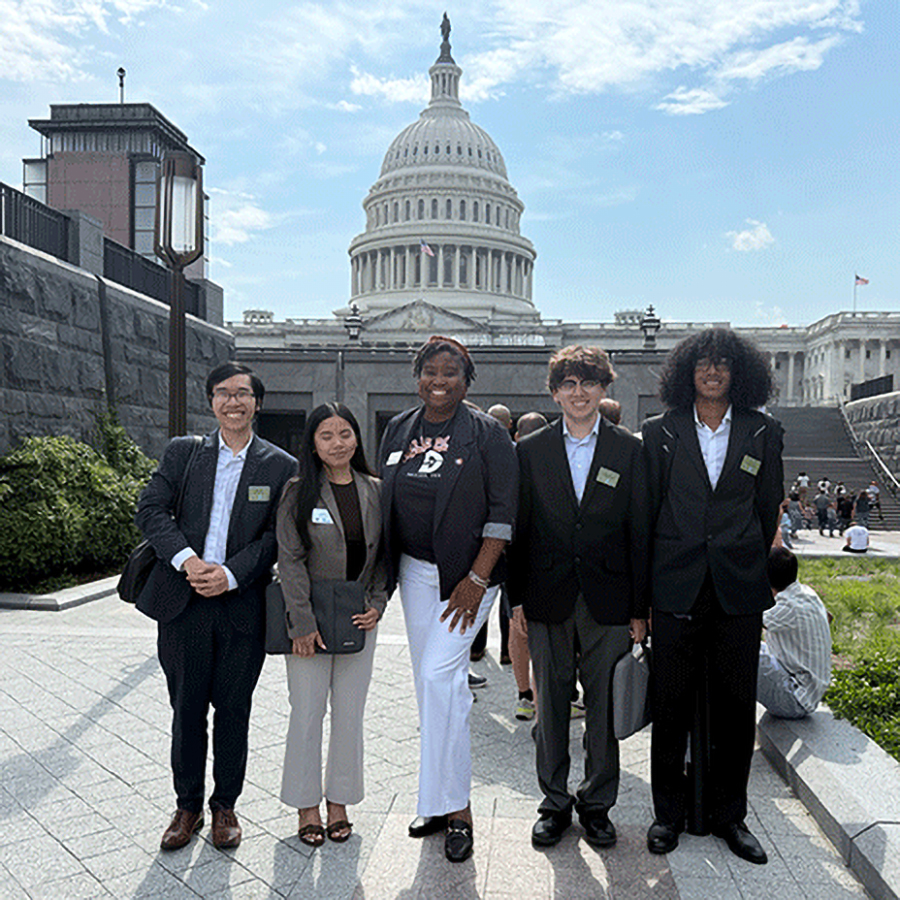Four recent Dallas College graduates were selected as finalists in the national Community College Innovation Challenge (CCIC) for their project, AVIADAR (Alerts VIA Detection and Ranging).
The team — Mang Cin, Khai Huynh, Taylor Hill and Christopher Zuniga — presented their LiDAR-based aircraft collision avoidance system at the CCIC Innovation Bootcamp in Washington, D.C., and claimed third place. The event, held June 9-12, was organized by the American Association of Community Colleges (AACC) in partnership with the National Science Foundation (NSF).
AVIADAR is designed to provide pilots with real-time alerts about potential hazards in their flight path, aiming to reduce aviation accidents and fatalities. The system utilizes LiDAR technology to detect obstacles and alert pilots, enhancing situational awareness and safety.
“There have been so many unfortunate accidents lately involving plane crashes,” said Cin, as she underscored the need for her team’s project. “We have AVIADAR sensors on the plane that detect hazards in the flight path, providing real-time alerts to pilots.”

The team was selected from among 48 entries to participate in the CCIC Innovation Bootcamp, where they engaged in professional development, mentoring, and coaching to refine their communication and entrepreneurial skills. The bootcamp culminated in a poster session and pitch presentation to STEM leaders and congressional stakeholders.
In addition to their participation in the CCIC, the team collaborated with NASA’s Technology Transfer University (T2U) program. This partnership allowed them to incorporate NASA-developed technologies into their research and design processes. The team is the first from a North Texas college to be accepted into the T2U program.
Dallas College Professor L. Taylor Starr mentored the team throughout the process, which started with a pitch in Fall 2024. She was impressed with the team’s determination, professionalism and knowledge.
“Every challenge I gave the students, they accepted, and their relentless commitment to research and continuous improvement is quite remarkable,” said Starr. “As an engineering professor with an MBA and an industry background in business development and aerospace, I enjoy nurturing the entrepreneurial spirit in our student innovators. The ability to help shape and mold student curiosity and creativity, from the conceptual phase through the engineering design process to product implementation, is why I became a professor in the first place.”
The AVIADAR team members include the following:
• Mang Cin, who earned an associate degree in computer science, plans to major in natural sciences. She was awarded the prestigious Jack Kent Cooke transfer scholarship.
• Khai Huynh, also a computer science graduate, intends to major in mathematics and computer science at the University of Texas at Austin. He has participated in SkillsUSA and will pursue a career as a data analyst.
• Taylor Hill, who studied mechanical engineering, aims to continue in the same field. He is interested in hands-on project leadership roles.
• Chris Zuniga, who earned an Associate of Science degree, plans to major in mechanical engineering and pursue a career in mechatronics.




